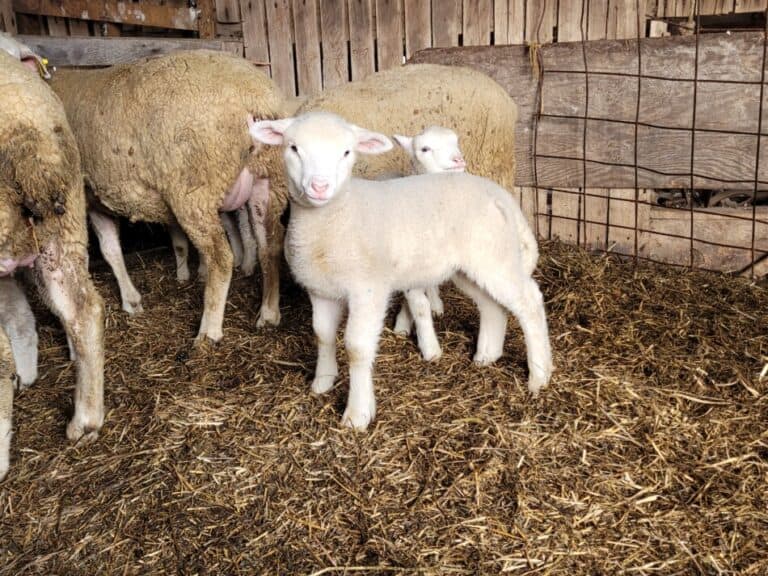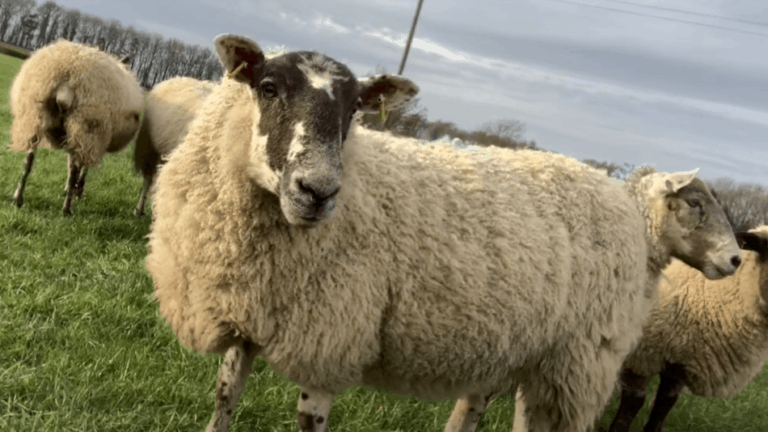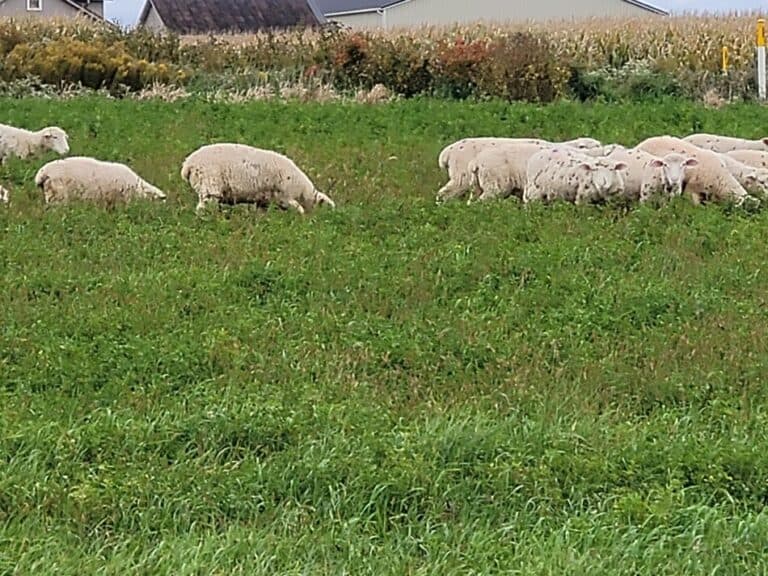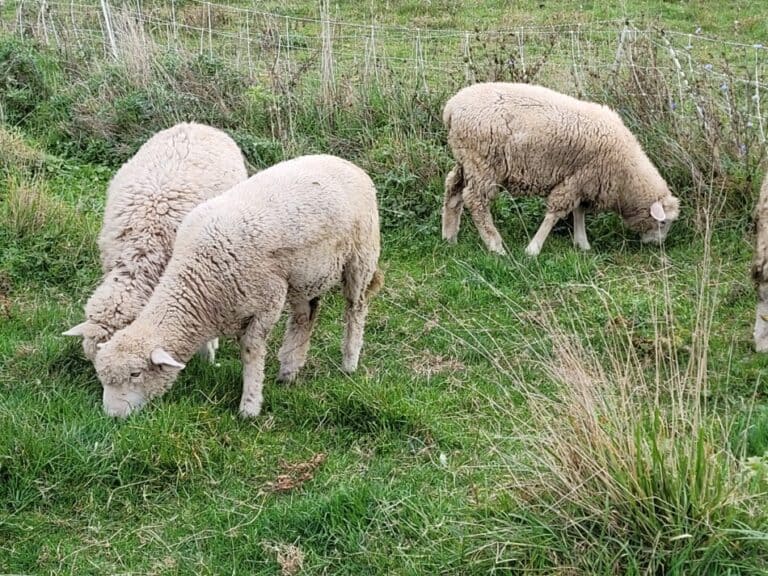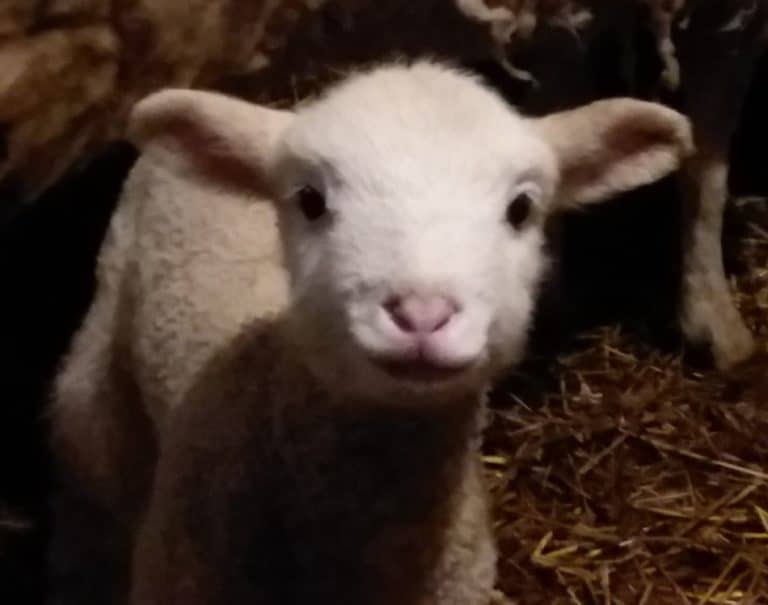Are Sheep Expensive To Raise?
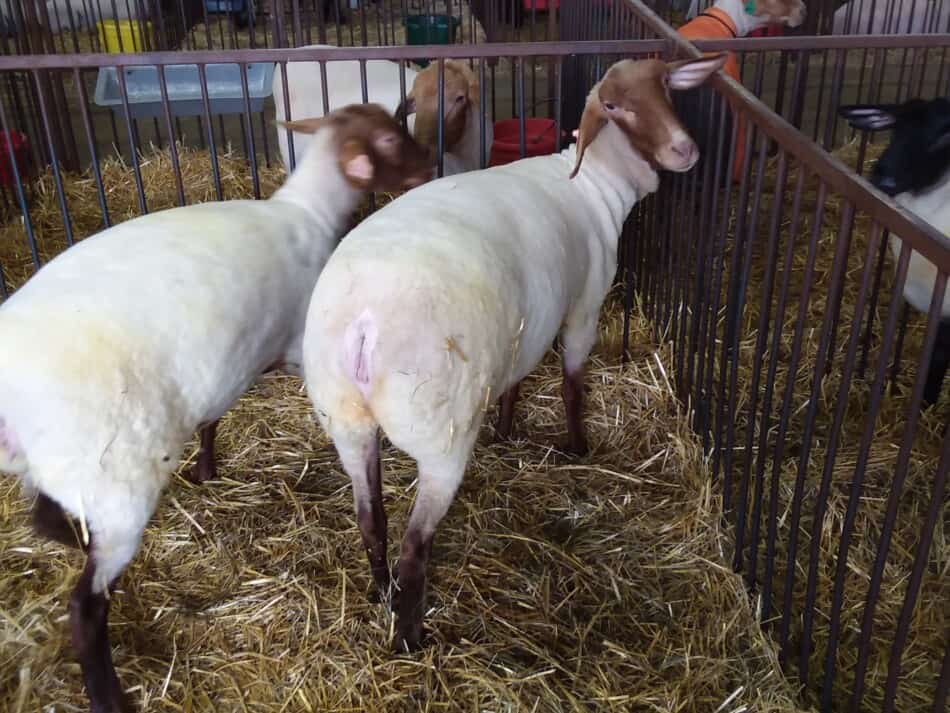
If you are thinking about getting into raising sheep, you’ll want to know a few of the economics around keeping sheep, mainly if they are expensive to raise.
Sheep are expensive to raise if your feed costs or predation are high or your management is poor. Sheep are not expensive to raise if you have plenty of grass or other economical sources of feed, like hay, and spend time daily observing the flock so you can catch problems early.
Raising Sheep For Profit goes over the numbers you’ll want to know when getting into sheep farming. I’ll also give you some ideas on how to find the costs and prices specific to your area.
Sheep are not expensive to raise
Sheep are not expensive to raise, at least they shouldn’t be!
Of course, the more feed or anything else that you buy for them, the more raising them will cost, but if you keep costs minimal sheep are very economical to raise.
If you plan to buy a lot of bagged feed, especially the brand name 50 pound bags, you’ll significantly increase the cost to keep your sheep.
If you plan to use land that you already have or have access to and feed the sheep off of the grass there, then you’ll have low to no additional cost to feed the sheep, aside from rent or taxes.
Cost to purchase the flock
One of the bigger costs you’ll have with your sheep is the cost to purchase the sheep themselves. The closer the sheep are to bringing in money for their owner, the more they will cost you to buy.
For instance, a ewe that is due to lamb in a month will cost significantly more than a ewe that is not yet bred, the same is true for ewe lambs.
You could start with bred ewes or open ewes (not bred) which should have lambs in the spring. Ewes should be able to have a lamb or two every year.
Since ewes are productive now, they will cost you more to buy. I would expect a ewe to cost around 2x the cost of a market lamb in your area. Around here that is $500-600 for a prime of life ewe.
You could also buy ewe lambs, which were born this year so they will have their own lambs next spring.
Some ewe lambs can have their first babies at one year of age, others need more time to grow and will do better with lambing at 2.
A well grown ewe lamb should cost you more than a market lamb for your area.
I would put the cost of a replacement ewe lamb (ewe lamb kept for breeding stock) to be more than a market lamb but less than a prime of life ewe, mostly because she is unproven as a mom.
Buying A Flock Of Sheep: Where to look and what you’ll pay shows you how to start your search for sheep that will work for you and your area and some idea of prices you can expect to pay.
Cost to raise sheep
Sheep can be very low to almost no cost to raise, if you have land that has plenty of grass for them and a way to keep them safe from predation and keep the parasites under control.
Sheep need to eat 3-3.5% of their body weight in hay per day.
This means that a 150 pound ewe will eat 4.5-5.25 pounds of hay per day of maintenance (not milking), so 10 ewes will eat about a 50 pound bale per day.
To find the cost of your hay per bale, take the cost of the hay per ton divided by 50.
For example: If your hay costs $250 per ton and the bales are 50 pounds each, the cost per bale is $6.25. Each ewe costs $0.625 per day to feed.
If you are feeding them grass, they will work this out for themselves. Your job is to keep them well supplied with water and a salt block, when the flock is on grass.
Don’t forget about your lawn! Our sheep graze off our lawn and grass around the buildings as part of the summer pasture rotation. Why mow those places when the sheep will do it for you?
If you are planning lambs that are not eating grass, consider creep feeding them.
Creep feeding is giving the lambs access to a special feeding area with lamb friendly feed or hay that the ewes can not get to, read Creep Feeding Sheep for the details.
You’ll also have smaller costs like deworming, any shots that you give, salt blocks, etc.
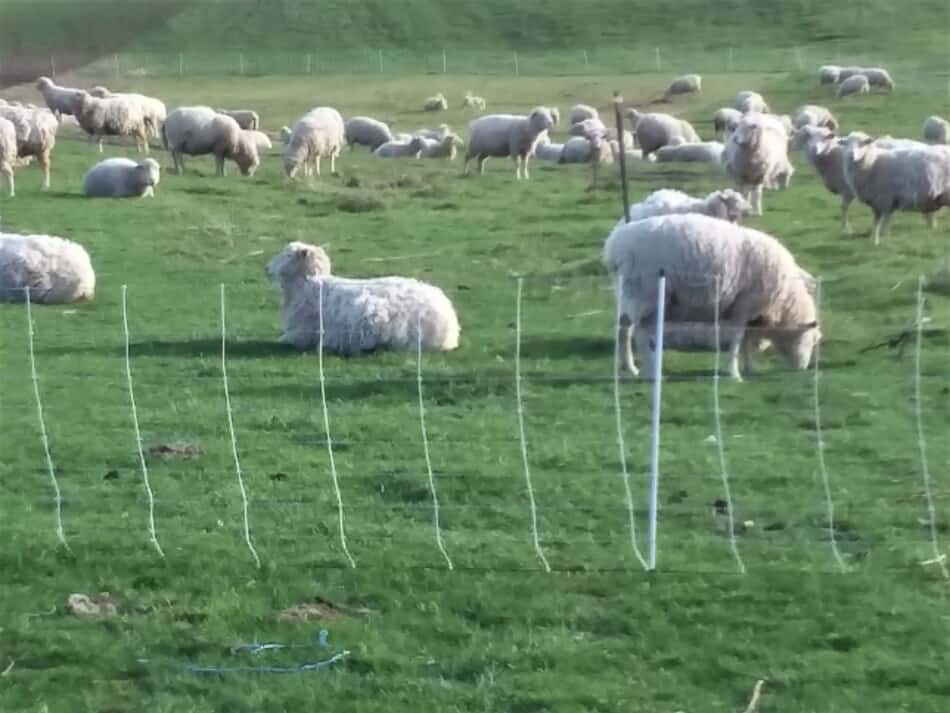
Sheep eat grass, do you have plenty?
While that sounds like an obvious statement, think about the forage that will be growing where you plan to put your sheep. Feed is the largest ongoing expense for any livestock owner, sheep included.
Is it grass or weeds or briars? If it’s lush grass, the sheep should do well there. If it’s brown and overgrown grass, you’re a bit late. Mow that and graze the sheep on the regrowth.
If it’s weeds, that’s a maybe, it depends upon the weeds. Some weeds sheep love to eat, others, not so much.
If it’s briars, the sheep may or may not eat it, this is really more of a goat type situation.
If you plan to have your sheep in with brushy or briar type foraging, give them a section of grass as well or give them so hay and let them choose what they eat for the day.
Sheep need some sort of shelter
Sheep need some sort of shelter from the weather. This could be woods or a substantial tree line, to block the wind or a three sided shed that they can go into any time they want.
If the sheep have a building, know that in the heat they will pack in there and actually be hotter inside, if your shed is small.
If the building is big, it may be cooler inside if all the sheep have plenty of room once everyone gets in there, it depends on the building. Either have plenty of shade for all or none.
Predation is costly
Predation of sheep is costly! A predator can wipe out a large portion of your flock overnight, leaving you scrambling for an answer to keep the rest of the ewes safe.
Predation is area specific. Do a bit of research and find out what predation concerns you have in your area, it could be wildlife or domestic, like unattended dogs.
Around here we have coyotes and fox as our main predators and the electric netting does a pretty good job of keeping them out. We also check the sheep a few times a day and frequently move the paddock.
Occasionally, small farmers email me about their predation problems. From these emails and our experience, it seems that attempted predation is to be expected for most flocks.
One gentleman emailed me that he had a predator attack in which half the flock was wiped out overnight! He has prevented additional predation problems by getting a donkey.
Other folks feel multiple livestock guardian dogs are crucial, Texas A&M is a big supporter of LGD’s, while other sheep owner have to pen up the sheep overnight or lose some to predators.
Sheep need some of your time
Sheep need some of your time each day. The biggest challenge with sheep is to keep the problems small by catching them early, this requires you knowing your sheep and intervening early.
While there are a few flocks of very low maintenance sheep, this is not the case for most.
Plan to spend time with the sheep each day so you know what they normally do during the day and how they act. Once you know this, now you can tell when something is off and look into the situation.
Generally speaking, a sheep that is laying down and chewing her cud is a happy sheep. If you are not seeing the ewes spend at least half the day chewing her cud, change something in your management.
Is Keeping Sheep Easy? gives you some things to think about from a full time shepherd.
Where is your market?
As your flock grows, you’ll need an outlet for the lambs you are raising or the ewes that you no longer need.
While this is not a cost to raise sheep, it is a cost: the cost of getting the sheep to market. This could be your butcher, an auction, your customers, etc.
If you plan to raise sheep for your freezer, no big deal, especially if you are planning to do the butchering yourself.
If you plan to sell the sheep, where will this be? When will they sell? How will you get them there?
How Much Will My Lambs Sell For? gives you some ideas on how to find lamb sales and prices in your area.
Everyone, let me repeat: everyone, who raises sheep should have a plan for selling the lambs you raise and you should have a good idea before you start what those prices are.
Raising sheep and not having a plan to get them sold at a nice profit is likely to make your sheep very expensive to raise!
Unless you are keeping sheep for pets, where you’ll sell your extras is just as important of a part of raising sheep as feeding and caring for them.
Sheep 201 has a sheep enterprise budget with an extensive list of costs that will give you a good start on figuring up the budget for your flock.
